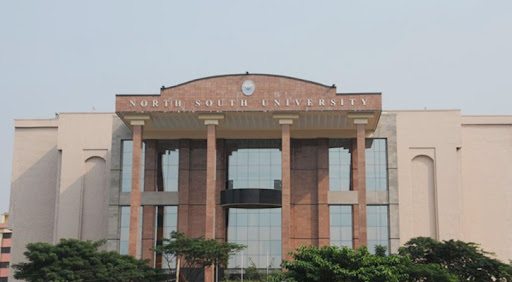
DHAKA, Dec 23, 2021 (BSS) - Experts and rights activists have suggested establishment of a regional climate solution hub and justice centre in Bangladesh in view of its vulnerability to the crisis as the private North South University (NSU) staged a seminar on climate justice.
According to a NSU press release the seminar's keynote speaker Professor Md Jakariya floated the proposal which the fellow experts endorsed, saying in view of Bangladesh's role in global climate change campaign it should appear as the climate justice centre and hub for climate solution research at least for the South Asian region.
Bangladesh's special envoy to the Climate Vulnerable Forum (CVF) Presidency Abul Kalam Azad joined it as the chief guest the seminar where Jakariya, an NSU faculty, also suggested defining the climate migrants and taking biodiversity-induced strategies.
"We must to play a crucial role as one of the climate victims, raising our voice for justice," he said.
The seminar noted that with its over 160 million population Bangladesh was exposed to extra vulnerability to the climate phenomenon with "ever-changing and emerging climate change issues".
Experts have warned that by 2050, low-lying Bangladesh was expected to experience an increase in temperature of about 1.5 degree Celsius which would endanger the life and livelihood of about 15 million people residing in its coastlines, contributing little to the climate change.
Azad stressed reinvention of participatory indigenous initiatives at grassroots in negating the climate impacts alongside intensifying campaign biodiversity in regard to climate justice.
UNDP Bangladesh's climate change specialist AKM Mamunul Rashid the vulnerable countries were exposed to different types of injustice despite being least emitting ones and deserved assistance from high-emitting nations' further supports to lessen their sufferings from climate induced disasters.
Water Aid’s country director Hasin Jahan pointed out the links between the water issues of deltaic Bangladesh and the climate change saying those were intensifying the problem and added access to technology was needed to combat the situation.
UNFCC CDM's executive board member Dr. Nurul Quadir, executive director of Ain o Salish Kendra (ASK) Golam Monowar Kamal, NSU's professorial fellow and former foreign secretary Shahidul Haque, Bangladesh Environment Lawyers Association's (BELA) chief executive Syeda Rizwana Hasan took part in the deliberations.
NSU's Department of Environmental Science and Management and the Center for Peace Studies (CPS) of South Asian Institute of Policy and Governance (SIPG) jointly organized the seminar.